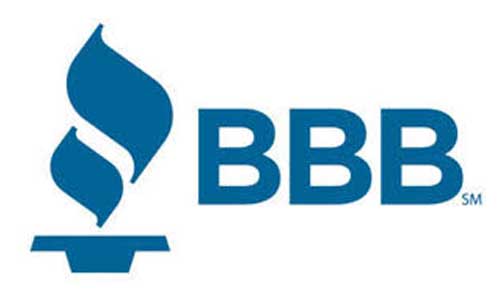ATLANTA — According to the National Retail Federation projections, this Valentine’s Day is anticipated to be significant, with consumer spending expected to reach nearly $26 billion.
As consumers prepare to celebrate, there a few common scams that they need to be cautious of. Whether individuals are hoping to foster a new relationship or buying gifts for loved ones, it is crucial to be aware of these three scams regularly reported to BBB.
Impostor websites
From fraudulent jewelry sellers to online dating sites, consumers should remain vigilant for impostor websites. Scammers can easily take official photos, sale promotions, and logos directly from the website of a popular jewelry brand. With professional graphics and unbeatable prices, scammers are able to create attractive websites that closely resemble the real thing.
Similar tactics may be used to build fake online dating platforms, often used to steal personal data and credit card information. Read our guide to smart shopping online for more tips to spot fake websites.
Red flags:
- Products are available at extreme discounts.
- The seller requests customers pay with cash transfer apps or cryptocurrency.
- Customer service is unreachable.
Romance scams
Romance scammers often target vulnerable people who have experienced a recent breakup or other hardships. They take advantage of that heartbreak to establish a connection and gain sympathy. Once they’ve gotten their victim on the hook with a compelling story, the pursuit of their true goal begins: money.
Falling victim to a romance scam can be particularly devastating, with victims losing substantial amounts of money. They are also left feeling heartbroken and betrayed, having believed they’d found a good partner. Read more about romance scams for safe online dating advice.
Red flags:
- The relationship moves very fast.
- You never meet in person.
- They ask for money.
Wrong number scam
Responding to a text message from someone who messaged the wrong number might seem harmless. It might even seem like the polite thing to do if they say they’re looking to reconnect with a potential match.
However, the initial text message serves as bait to engage you in conversation. If the conversation persists, they may eventually try to get your personal information by directing you to sign up for an adult site. Learn more about wrong number texts and spambots.
Red flags:
- The messages don’t stop.
- The sender directs you to sign up for a website.
- They try to get your personal information.
Fake florist scam
Plan on ordering flowers for Valentine’s Day? Don’t procrastinate or you may fall victim to a scam. BBB has received many reports of shoppers who thought they were ordering flowers from an online florist, only to receive nothing at all or a disappointing arrangement. Don’t let phony florists ruin Valentine’s Day.
Red flags:
- The business has no reviews or bad reviews (always check BBB.org!)
- You can’t find a return policy or satisfaction guarantee.
- The deal is “too good to be true.”
What to do if you encounter a scam
If you encounter a suspected romance scam, cut off all contact with the perpetrator by blocking their accounts and phone number. Then, report your experience to BBB.org/ScamTracker. Dating site users should also report suspicious activity to the platform so they can take action against the scammer’s account.
The BBB helps people find and recommend businesses, brands, and charities they can trust. People today are overwhelmed with choices – and often unsure about where to find verified, unbiased information.


![Validate my RSS feed [Valid RSS]](https://web.archive.org/web/20240108205913im_/https://ocgnews.com/wp-content/uploads/2022/07/valid-rss-rogers.png)


